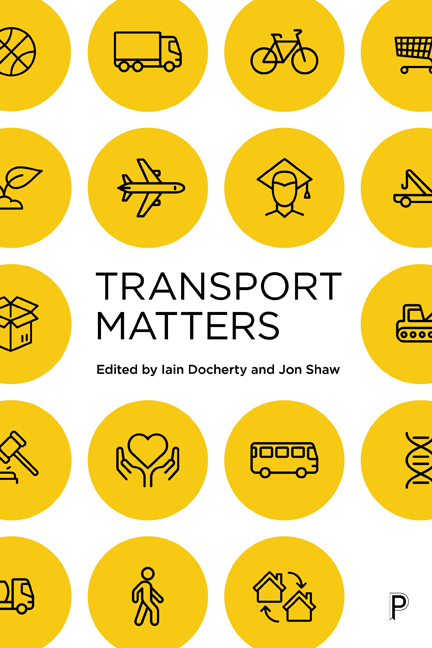Foreword
Published online by Cambridge University Press: 03 March 2021
Summary
Why does transport matter?
I asked this question when running a leadership seminar in a government transport department. Everyone in the room was smart enough to know that transport is bigger than just services running smoothly, whether bus, tram, train or the roads themselves. They quickly got to ‘the economy, stupid!’, which is, one has to admit, a good point; but it is a means, not an end. After a rich conversation about purpose, which is as central to government as it is rare, the examples, the stories, were all about people. ‘It's so an apprentice can get to work’. ‘So a grandparent can babysit for his daughter, giving her and her partner their first night out since the baby was born.’ In the end, it's agency: the ability to shape your choices to make the life that you want to live.
So, ‘Transport Matters’. Though this book's title can be read as an exasperated assertion – ‘No, it really does matter!’ – the essays collected here give a deep and thoughtful response to the question. From a range of perspectives, the authors demonstrate that transport has, does and will always matter. The long view shows how path-dependent transport policy can be, how the missteps of the past literally drive the present and shape the future. The richly comparative take shows that it needn't be this way. The interrogation of trends shows the truth of William Gibson's adage: ‘The future's here already, it's just unevenly distributed.’
This is a book that believes profoundly in the public sphere – the creation of shared value through shared values. I have long believed that public transport makes social democrats of most of us; it is the ultimate combination of personal choice and collective provision working together. My hunch was confirmed when I asked a US demographer to explain why the exurbs had trended Republican during the late 1980s but were becoming solidly Democrat under Obama. ‘After enough densification’, he remarked, ‘top political concerns shift from the right to bear arms to the need for mass transit.’
- Type
- Chapter
- Information
- Transport Matters , pp. xxiii - xxivPublisher: Bristol University PressPrint publication year: 2019



